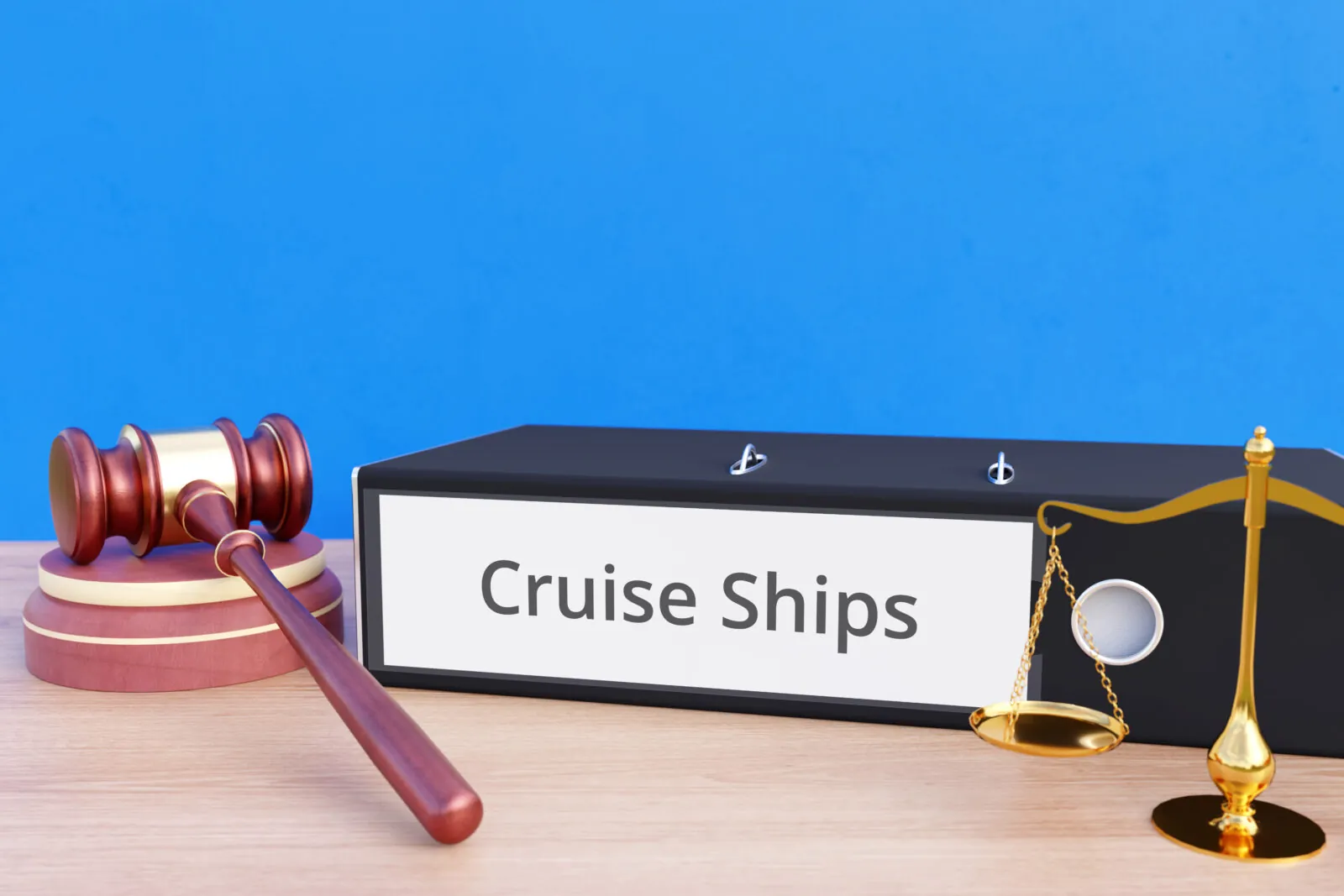Cruise vacations are meant to be relaxing and enjoyable, but accidents can happen, leading to injuries that may require legal action. If you’ve been injured on a cruise ship, you may be wondering, “How long do I have to file a lawsuit?” The answer lies in understanding the statute of limitations for cruise ship injury lawsuits.
In this article, we’ll explore the legal deadlines, maritime law implications, and specific filing periods for major cruise lines such as Carnival, Royal Caribbean, and Norwegian. We’ll also provide guidance on how to protect your legal rights and what to do if you’ve missed the filing deadline.
Understanding the Statute of Limitations for Cruise Ship Injury Lawsuits
What is a Statute of Limitations?
A statute of limitations is the legal time limit within which you must file a lawsuit. Once this period expires, you lose the right to pursue legal action, regardless of the severity of your injury.
For cruise ship injury claims, the statute of limitations is typically shorter than in other personal injury cases due to maritime law regulations and the terms set by cruise lines in their ticket contracts.
How Does the Statute of Limitations Apply to Cruise Ship Injuries?
Cruise ship injury claims are governed by maritime law, which often imposes a strict one-year statute of limitations. This means you must file your lawsuit within one year from the date of the incident.
However, the exact timeframe can vary depending on:
- The cruise line’s ticket contract
- The type of injury (e.g., physical injury, emotional distress, property damage)
- Jurisdiction and applicable maritime laws
Failure to file within this period generally leads to the dismissal of your case, regardless of the circumstances of your injury.
How Long Do You Have to File a Cruise Ship Injury Lawsuit?
General Time Limits for Filing
Under maritime law, the statute of limitations for cruise ship injury lawsuits is typically one year. However, this can vary depending on the cruise line and the specifics of the case.
For example:
- Carnival, Royal Caribbean, and Norwegian typically require claims to be filed within one year.
- Some cruise lines may allow up to two years for certain types of claims, such as property damage.
Factors Influencing Filing Deadlines
Several factors can influence the filing deadline for a cruise ship injury lawsuit, including:
- Cruise Line Ticket Contracts: Most cruise lines include clauses in their ticket contracts specifying the statute of limitations.
- Type of Injury: Physical injuries may have a different timeframe compared to emotional distress or property damage claims.
- Jurisdiction: The location where the lawsuit is filed can also impact the deadline due to varying maritime laws.
It’s crucial to read your ticket contract carefully and consult with a maritime personal injury attorney to understand your specific legal rights and deadlines.
Cruise Ship Accident Claim Deadlines for Major Cruise Lines
Carnival Cruise Injury Lawsuit Deadline
Carnival typically requires injury claims to be filed within one year from the date of the incident. According to Carnival’s ticket contract, lawsuits must be filed in the United States District Court for the Southern District of Florida.
Royal Caribbean Accident Claim Time Limit
Royal Caribbean also imposes a one-year statute of limitations for personal injury claims. Legal action must be filed in the U.S. District Court for the Southern District of Florida, as specified in their ticket contract.
Norwegian Cruise Injury Filing Deadline
Norwegian Cruise Line follows a similar policy, requiring injury claims to be filed within one year. Lawsuits must be filed in the U.S. District Court for the Southern District of Florida. It’s important to note that this applies to both domestic and international passengers.
How Maritime Law Affects Cruise Ship Injury Claims
What is Maritime Law?
Maritime law, also known as admiralty law, governs legal matters related to navigation and commerce on the seas. It applies to cruise ship injury claims because cruise lines operate under international waters and are subject to maritime jurisdiction.
Why Does Maritime Law Matter for Cruise Ship Injury Lawsuits?
Maritime law impacts cruise ship injury claims in several ways:
- Shorter Statute of Limitations: Typically one year instead of the standard two to three years for land-based personal injury claims.
- Jurisdiction Requirements: Lawsuits must often be filed in a specific court, as designated by the cruise line’s ticket contract.
- International Considerations: Maritime law applies to international waters, affecting injury claims for incidents that occur outside of U.S. territorial waters.
Understanding maritime law is crucial when pursuing a cruise ship injury lawsuit, as failure to comply with these regulations can result in case dismissal.
Exceptions and Special Circumstances for Filing Deadlines
When Can the Statute of Limitations Be Extended?
In certain situations, the statute of limitations may be extended, including:
- Injuries to Minors or Incapacitated Passengers: The clock may start once the victim turns 18 or regains mental capacity.
- Hidden or Delayed Injuries: If injuries were not immediately apparent, the filing deadline might be extended.
- Cruise Line Misconduct or Negligence: In cases of fraud or gross negligence, the court may allow an extension.
How to Request an Extension
To request an extension of the filing deadline, you must:
- Provide a valid legal reason for the delay.
- File a motion for extension with the court.
- Present supporting evidence, such as medical records or expert testimony.
Consulting with a maritime personal injury lawyer is highly recommended to navigate these complex legal procedures.
Steps to Take If You Missed the Deadline
Can You Still File a Lawsuit After the Statute of Limitations Expires?
Generally, you cannot file a lawsuit once the statute of limitations has expired. The court is likely to dismiss your case, and you will lose your right to compensation..
Are There Any Alternatives?
If you missed the deadline, consider the following options:
- Settlement Negotiations: Some cruise lines may offer out-of-court settlements.
- Alternative Dispute Resolution: Mediation or arbitration might be possible, depending on the cruise line’s policies.
- Insurance Claims: If you purchased travel insurance, you might be able to file a claim for medical expenses or lost wages.
While these alternatives are not guaranteed, they may provide some compensation if a lawsuit is no longer viable.
Frequently Asked Questions (FAQs)
What is the statute of limitations for cruise ship accidents?
The statute of limitations for cruise ship accidents is typically one year from the date of the incident. This is due to maritime law regulations, which impose a shorter filing period compared to land-based personal injury claims. Most major cruise lines, including Carnival, Royal Caribbean, and Norwegian, specify this one-year limit in their ticket contracts. It is crucial to file within this timeframe, as missing the deadline can result in the dismissal of your case.
How long do I have to file a cruise ship injury lawsuit?
In most cases, you have one year from the date of the injury to file a lawsuit. However, this can vary depending on the cruise line’s ticket contract, the nature of the injury, and the jurisdiction in which you are filing. For example, some cruise lines may allow for longer filing periods in cases of property damage or delayed injury symptoms. It is important to consult with a maritime personal injury attorney to understand the specific timeframe applicable to your case.
Can I file a lawsuit against a cruise line after one year?
Generally, no. Once the one-year statute of limitations has passed, your right to file a lawsuit is typically forfeited. However, there are some exceptions, such as cases involving minors, incapacitated individuals, or hidden injuries that were not immediately apparent. Additionally, if the cruise line engaged in fraudulent conduct or gross negligence, you might be able to petition for an extension. Consulting with an experienced attorney is essential to determine if your case qualifies for any exceptions.
Are there different deadlines for filing claims against specific cruise lines?
Yes, different cruise lines may have slightly different deadlines as outlined in their ticket contracts. For instance, Carnival, Royal Caribbean, and Norwegian generally require injury claims to be filed within one year. However, they may have specific clauses for property damage claims or incidents involving international passengers. It is crucial to review your ticket contract thoroughly to understand the specific filing requirements for the cruise line you were traveling with.
What happens if I miss the filing deadline?
If you miss the statute of limitations deadline, your case will likely be dismissed, and you will lose the right to pursue legal action. In rare cases, you may be able to negotiate a settlement directly with the cruise line, but this is not guaranteed. Alternative dispute resolution methods, such as mediation or arbitration, might also be possible, depending on the cruise line’s policies. However, these options are typically more limited than a formal lawsuit.
Contact The Cruise Injury Law Firm Today
Navigating the legal complexities of a cruise ship injury lawsuit can be challenging, especially with the strict deadlines imposed by maritime law. Understanding the statute of limitations, filing requirements, and exceptions is essential for a successful claim.
Take action today. Contact The Cruise Injury Law Firm to schedule your free consultation.



